CO’s 25 Under 35: The Lenders and Debt Brokers to Watch in 2017
By The Editors October 4, 2017 11:00 am
reprints
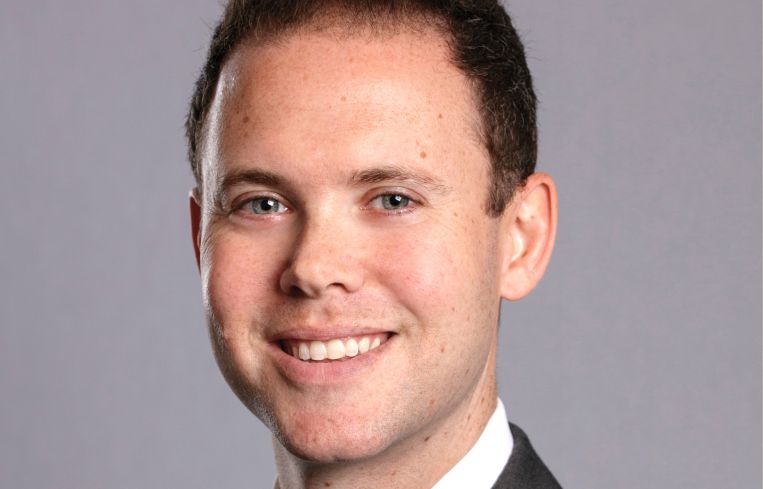
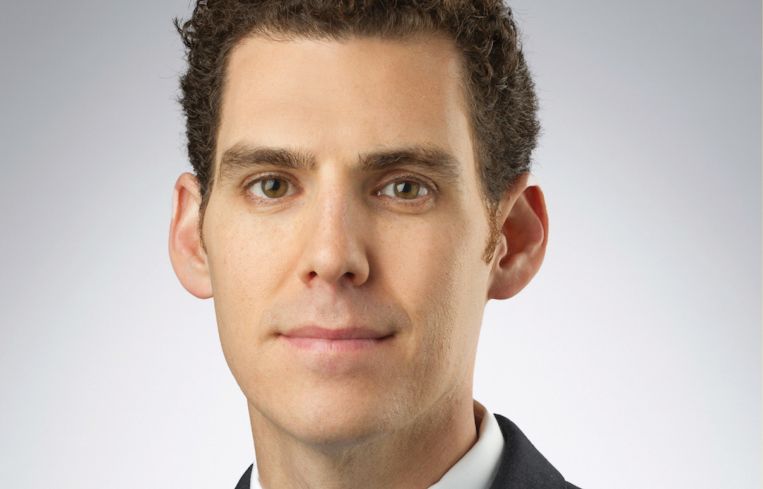
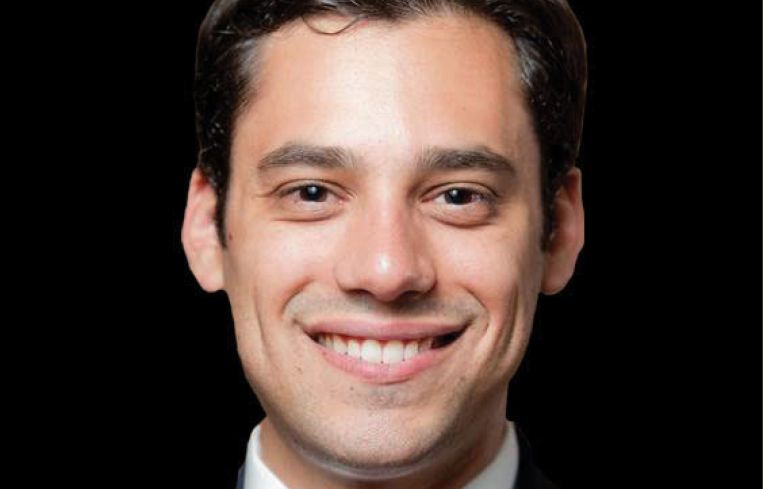
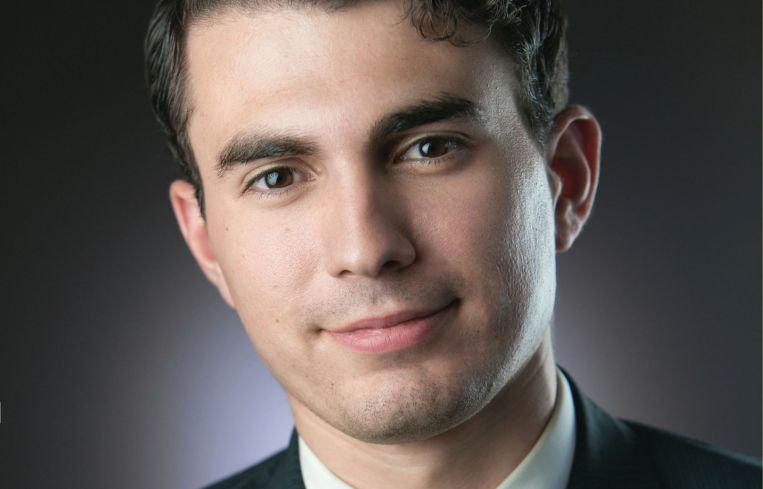
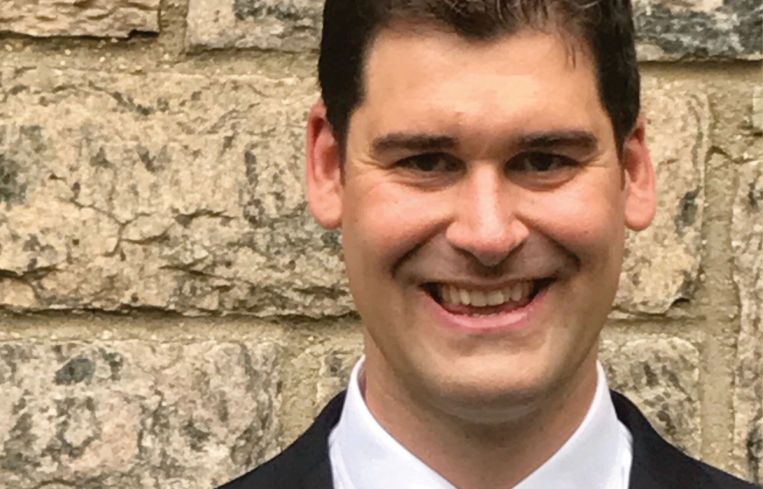

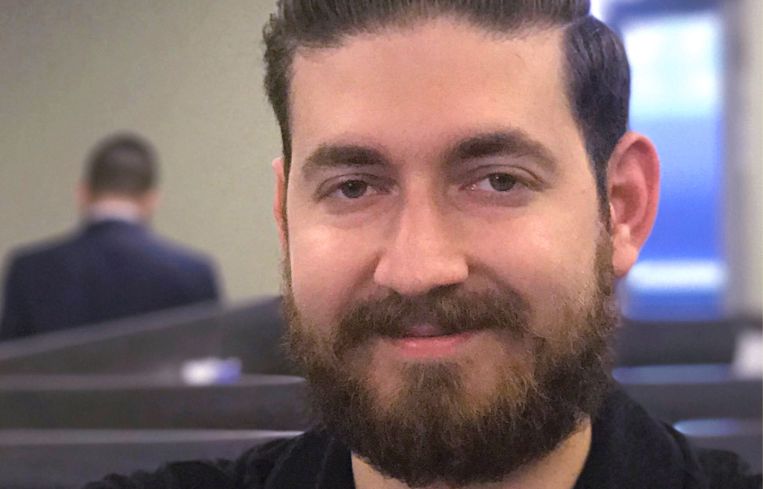
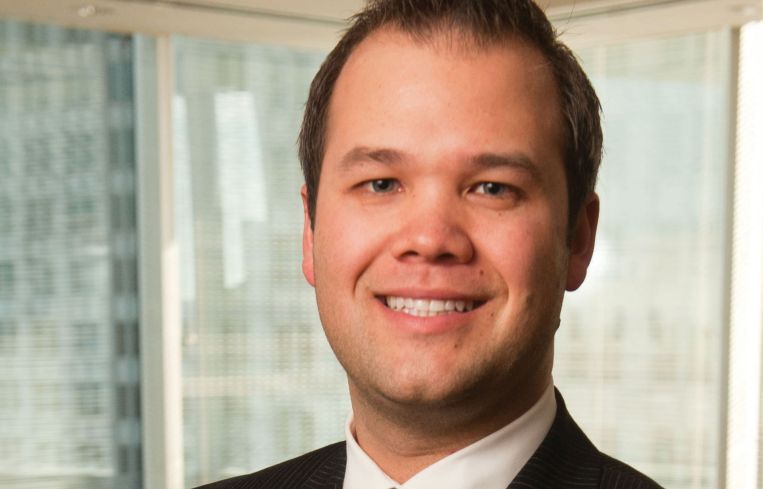
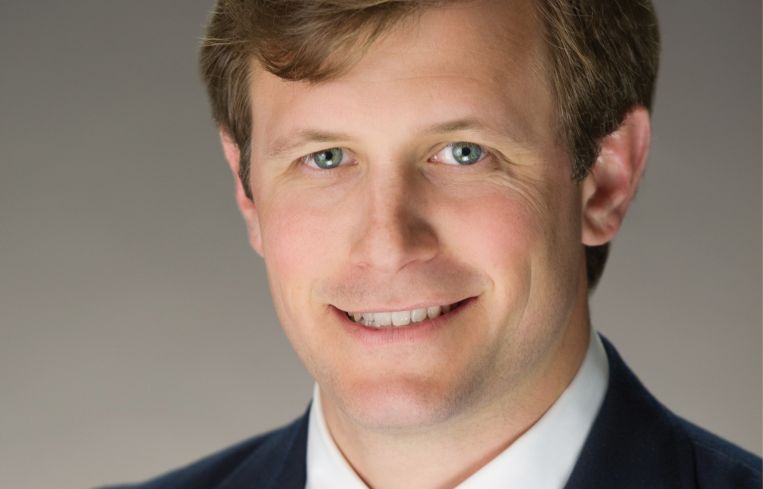
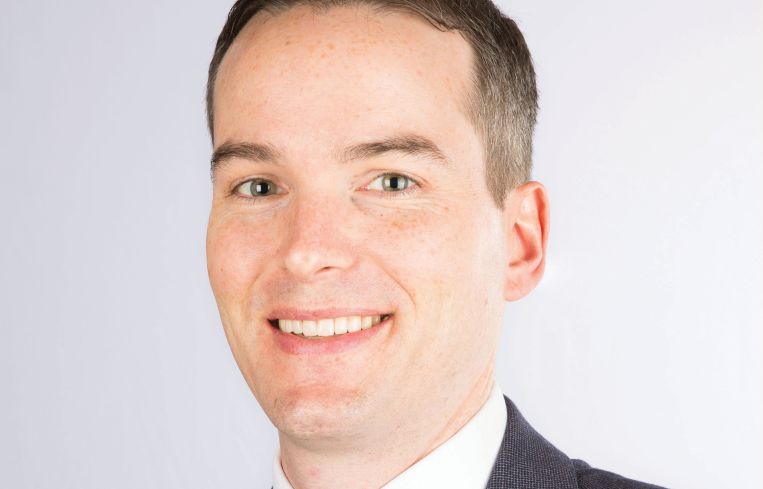
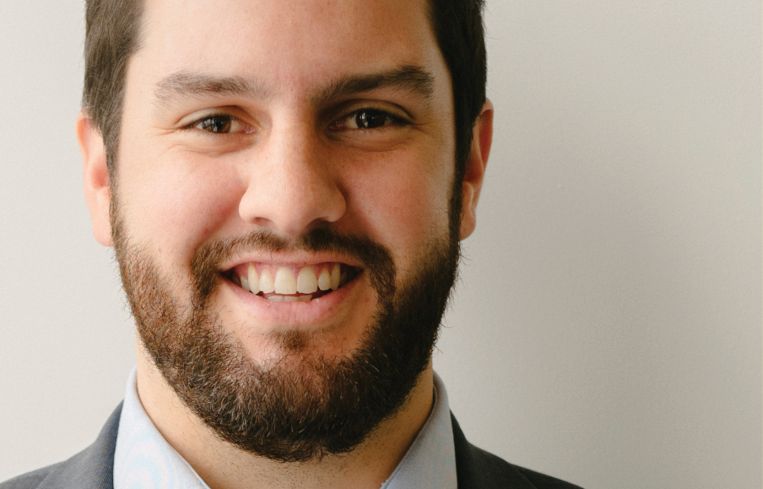
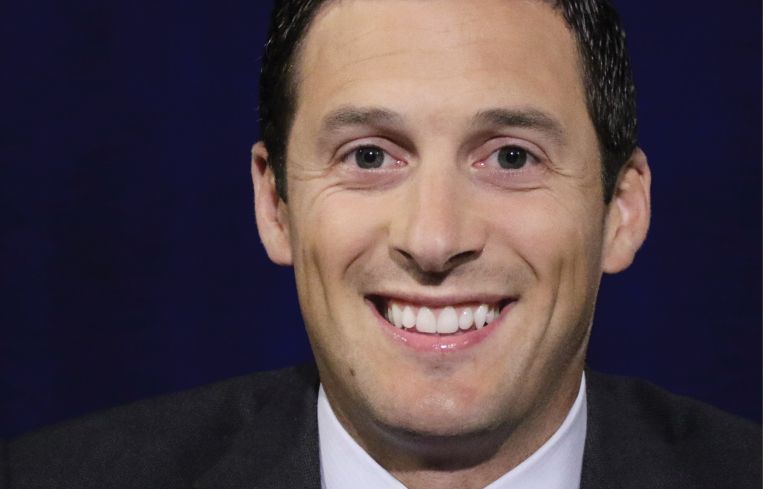
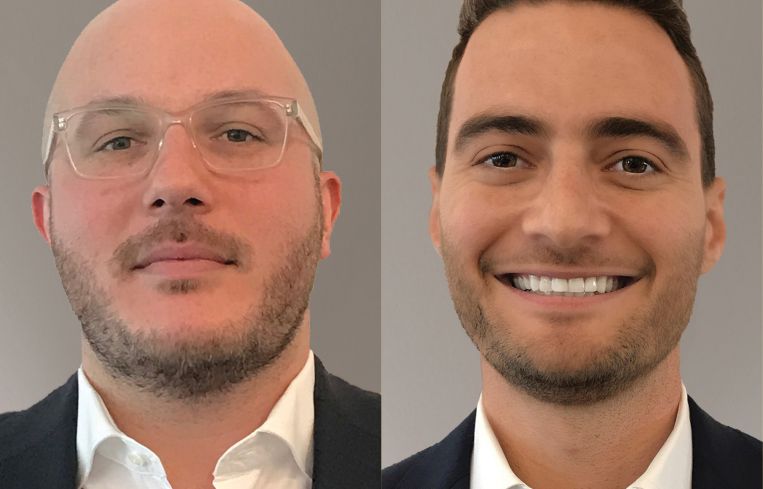
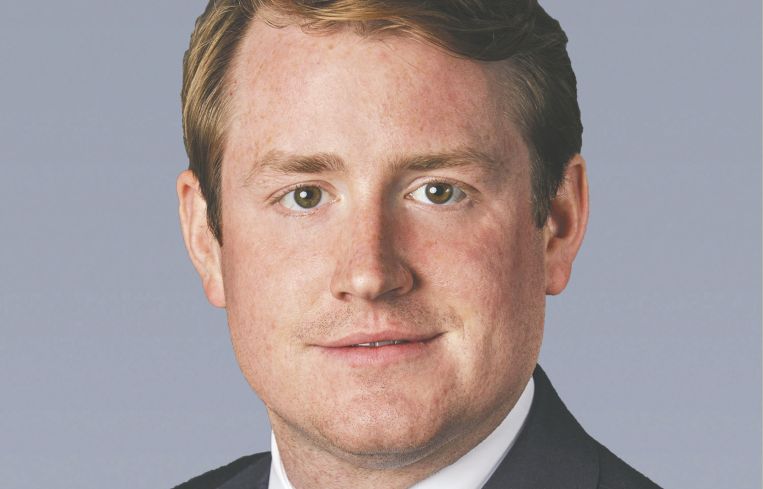
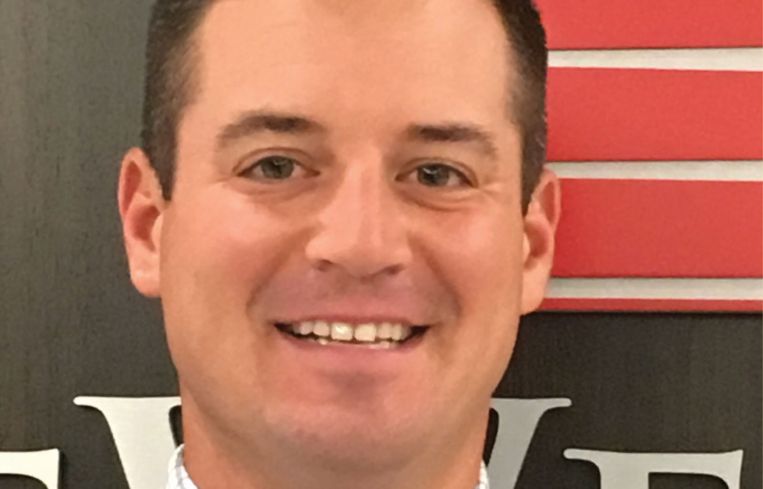
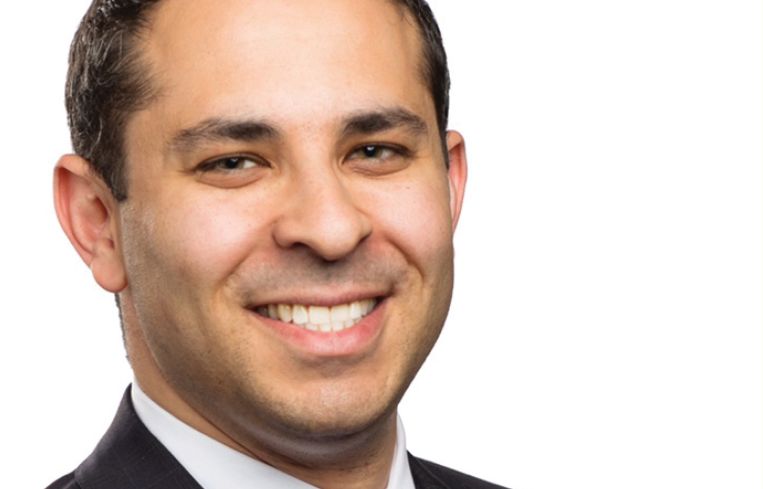
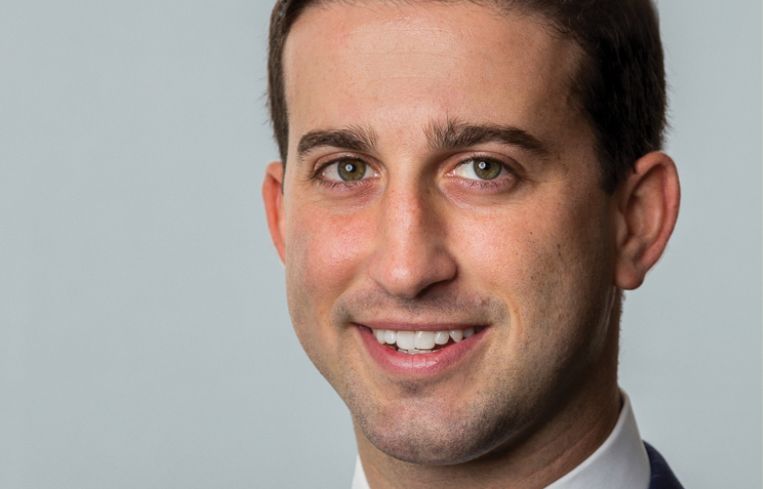
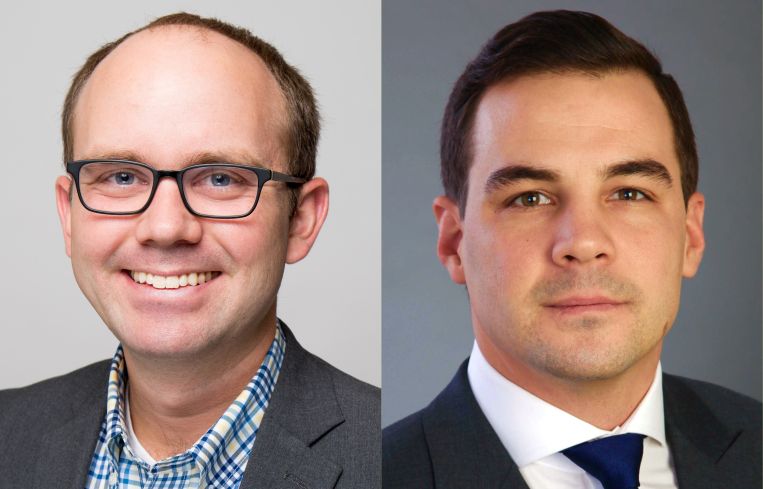
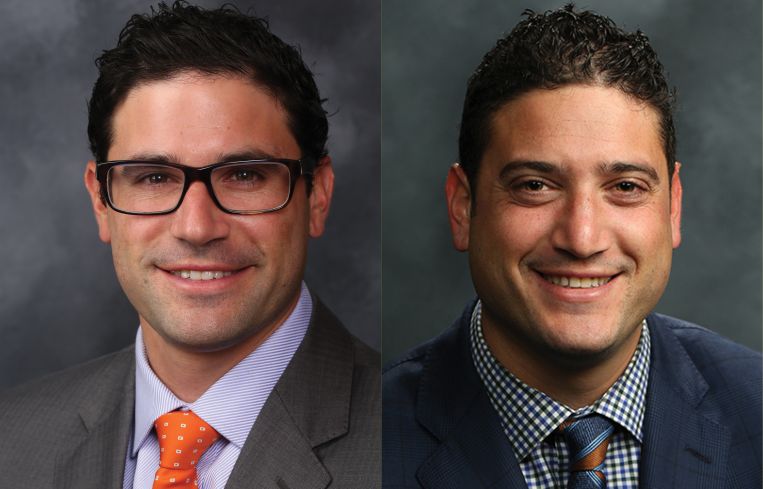
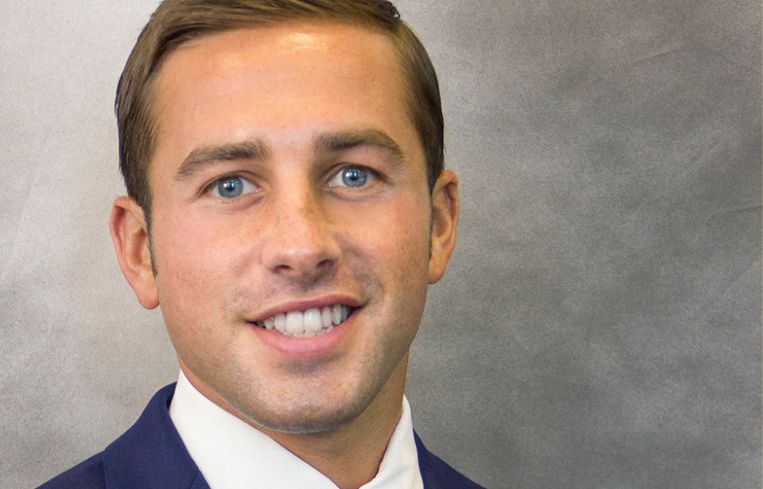



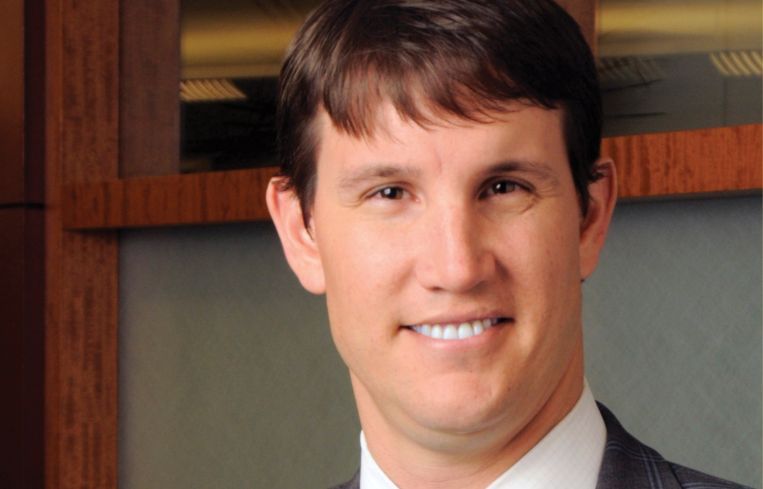

The commercial real estate market is awash with capital at the moment, but it’s not only the industry vets that are closing deals and blazing trails.
In Commercial Observer’s 25 Under 35 list, we’re showcasing the industry’s top debt originators and brokers under the tender age of 35. Several of those on the list have originated or negotiated upward of $1 billion in debt over the past 12 months, and some have originated close to $5 billion.
Some work for banks, some for life companies, some for alternative lenders and some are intermediaries. But these young professionals have one thing in common: they’ve all been very busy moving cash, by the boatload, to some of the most buzzed-about real estate transactions of the past year. —Cathy Cunningham
David Borden, 32
Director, Ackman-Ziff Real Estate GroupAckman-Ziff’s David Borden got his first dose of real estate at a very young age.
His father was an independent developer with a focus on retail and multifamily and his mother’s family owned office and retail property in Long Island, N.Y. “I was spoon-fed real estate in the crib,” Borden said with a laugh. “There were many dinner conversations around real estate and construction sites. That was my initial exposure. I always knew I was interested in real estate.”
Borden grew up in Upper Saddle River, N.J., in the 1990s, idolizing longtime New York Yankees shortstop and former captain Derek Jeter. Jeter captivated him not only with his play but also his work ethic and leadership qualities. The Ackman-Ziff director said he believes his mentors at the firm—the company’s partners (although they’re all Mets fans)—possess the same qualities and they have made quite an impression on him in his nearly five years at the firm.
This can be evidenced in the roughly $1.2 billion in debt that Borden has placed over the last year. The most memorable deal of the year for Borden is a $228 million construction loan from PNC for RXR Realty’s redevelopment of Pier 57 at Hudson River Park, a planned 480,000-square-foot, mixed-use project. Google will anchor the building with 250,000 square feet of office space via a 15-year lease.
“Pier 57, when complete, is going to be one of the most highly recognized buildings in all of New York,” Borden said. “Anytime Google is attached to something it’s incredible. It’s a venue that’ll be highly trafficked; this special asset will drive the Hudson River Park area.” Borden also arranged $100 million of joint venture equity and a $400 million construction loan for the ground-up development of Douglas Development’s 11-story, 756,000-square-foot mixed-use building at 655 New York Avenue NW in Washington, D.C. Borden declined to disclose the provider of the joint venture equity but added that it was a “public global real estate company, and the debt was provided by a syndicate of four lenders—two co-leads and two participants.”
“I’ve spent a lot of time in D.C., and I think it’s one of the most high-profile deals in the area,” Borden said. “It’s one I’ll remember for my entire career. It’s assisted in providing us an incredible presence in downtown D.C.”
Borden arrived at Ackman-Ziff after seven months as an acquisitions analyst at Newcastle Realty Services. He received his bachelor’s degree in economics from the University of Wisconsin and both his MBA in finance and J.D. from Hofstra University; he’s a licensed attorney in New York.—Mack Burke
Jason Bressler, 34
Vice President, Originations, Mesa West Capital“I really enjoy the debt side of the business. I feel like it meshes well with my personality,” Jason Bressler said. In particular, Bressler said he enjoys the high volume of transaction opportunities coming across his desk (“I’m a deal junkie”) coupled with the challenges of finding the perfect structure for a borrower—from its term to the rollouts to additional capital needs.
And to say he’s good at his job would be putting it mildly: Bressler originated an admirable $555 million in debt over the last year. In a business filled with competitors, Mesa West stays ahead of the herd by “moving quickly and being nimble,” Bressler said, and by not straying far from its core strategy. “We stay true to our core DNA, and we lean in aggressively when there’s an opportunity that we like.”
Last year, those opportunities to lean in included a $283 million loan for Brightstone Capital Partners and Artisan Realty Advisors’ acquisition and renovation of Lantana Media Campus—a 478,000-square-foot office campus at 3000 Olympic Boulevard in Santa Monica, Calif., last November and a $91 million loan for KBS Realty Advisors to recapitalize its all-cash acquisition of Stonebridge Plaza—a 386,000-square-foot Class A office campus at 9600 North MoPac Expressway in Austin, Texas.
Bressler grew up in Alamo, Calif. The first to enter the real estate industry in his family, Bressler is the son of two physicians. His parents were his role models as a kid—hardworking and very involved in his upbringing, but they still “made sure I had enough leeway to grow and make more than a few mistakes.” Today, his mentor is Steve Fried, a principal of Mesa West. “Steve is extremely diligent,” Bressler said, “but has also given me runway to grow and learn from my—hopefully not-too-many—mistakes.”—C.C.
Andrew Dansker, 33
First Vice President, Marcus & MillichapMarcus & Millichap has shown a knack for nurturing its young talent. Andrew Dansker joined in 2013 at age 29 and originated and placed $250 million worth of debt last year.
Dansker’s recent deals include a $46.5 million loan to Oak Tree Residential from Metropolitan Commercial Bank for a 207-unit Central and North Brooklyn portfolio that he calls “one of the largest portfolios of stabilized multifamily assets in New York to trade in 2017” and $12.5 million from Orix USA to 190 Academy Urban Renewal for a micro-apartment development at that address in Jersey City, N.J.
For Dansker, who grew up on the Upper West Side, finance was in his blood. Both his grandfather, Jerome Dansker, and his father, Lowell Dansker, served as chairmen of Intervest National Bank.
“My first job in real estate was working for my dad at the bank,” Dansker said. “I was maybe 7 or 8 years old, and I was removing paper clips from shredded files so they could be recycled. I got paid in cookies.”
Dansker relishes being part of the multitude of diverse deals, and diverse people, thanks to his work at Marcus & Millichap.
“I love to hear the stories of how people got into the business and how they acquired the assets they have,” Dansker said. “New business involves meeting lots of first generation Americans and New Yorkers, and their stories never cease to amaze me. People in real estate come from a variety of backgrounds and have other businesses, and I’m always fascinated by that.”—Larry Getlen
Matthew Fantuzzi, 26
Senior Associate, Emerald Creek CapitalMatthew Fantuzzi of Emerald Creek Capital has originated $130 million of loans across 25 deals over the last 12 months.
One of the youngest professionals on Emerald Creek’s origination team, Fantuzzi earned his bachelor’s degree in finance from Rider University in 2013. After making two career stops in other areas of finance, he decided to shift his focus to real estate, joining Emerald Creek in March 2014 as an associate, before being elevated to senior associate in January 2016.
“There are definitely a lot of different aspects to every deal and, being one of the younger guys, you’re picking up on things as you’re going through each deal such as rent stabilization, vacancies, [little things] of that nature,” Fantuzzi said.
Fantuzzi was recently able to provide a two-year, $8 million acquisition loan for the purchase of an assemblage of three multifamily buildings at 343 and 339-341 East 33rd Street in Kips Bay. Michael Heletz, of Excel Development Group, filed plans in late November last year to demolish all three, four-story walk-up apartment buildings, records show.
“There was a bit of difficulty in terms of air rights, and the fact that it was an acquisition of multiple buildings,” Fantuzzi said. “We refinanced the first loan made to the borrower. The borrower bought one of the buildings; we made a loan. He bought the other two; we refinanced and gave him a cash-out on the other two.”
Originally from West Milford, N.J., Fantuzzi said his father was the source of much inspiration for him as a kid. He encouraged him to consider real estate as a strong avenue down which to pursue a career in finance. That mentorship has transitioned to his work life, Fantuzzi said, as Emerald Creek co-Founders Mark Bahiri and Mark Penna as well as Managing Directors Jeff Seidler and Mike Cleaver have assumed that role.
“My bosses have taken over the role of showing me how to act with integrity and who I should be as a person,” Fantuzzi said. “They’ve helped me become a better originator.”—M.B.
Andrew Fleming, 34
Director, DekaBank Deutsche GirozentraleAndrew Fleming, a native of Aberdeen, Scotland, started working at DekaBank Deutsche Girozentrale in November 2015 and has taken off considerably, underwriting $361 million over the past 12 months.
The four deals that gave Fleming such a successful year include a refinancing of One Liberty Plaza for Brookfield Properties, which he describes as “one of the largest stabilized office transactions that closed this year in New York City that was financed by bank balance sheet lenders.”
Deka was one of the four co-lead arrangers who structured and closed the $850 million deal, with Morgan Stanley, ING and LBBW as the other co-leads. Deka’s portion of the underwriting was $135 million.
Fleming was also involved in the $207 million redevelopment financing of the Pacific Place shopping center in Seattle with Deka underwriting $95 million and securing $80 million in acquisition financing for the Qatar Investment Authority for the St. Regis Hotel in San Francisco. His early success is unsurprising, as Fleming said he has long had an affinity for figures.
“I was always interested in numbers and finance, so I studied accounting and finance at university,” said the University of Strathclyde graduate, who earned joint honors in accounting and finance at his Glasgow-based university.
Fleming, who grew up on a small Scottish dairy farm and is a tremendous fan of rugby, has thrown himself full force into the networking side of the business, setting up Young Members events for the Real Estate Lenders Association, with which he’s been active since 2012, and organizing a monthly lunch at Hill Country BBQ for lending and equity professionals.
Fleming said the most exciting thing about the business is the different sorts of people he has the opportunity to meet on a regular basis. “It’s a large industry to network in,” he said. “We work with a lot of different banks and sponsors. Lots of people in this industry are fun to hang out with as well as do business with.”—L.G.
Felix Gutnikov, 31
Principal and Executive Vice President, Originations, Thorofare Capital“Say yes to opportunities. Be honest, stay humble and don’t overcomplicate things.”
That is Felix Gutnikov’s advice for anyone entering the real estate industry today. And, with $580 million of debt originations under his belt in the past year alone, chances are you should heed his words if you’re looking for success.
Gutnikov, a Chicago native, joined Los Angeles-based Thorofare Capital in January 2012 after getting his bachelor of science degree in marketing from the W.P. Carey School of Business at Arizona State University.
His mother, Helen, emigrated to the U.S. from Russia. She spoke very little English but worked several jobs to support Gutnikov and his sister, Kate, and to restart her own medical education. Gutnikov’s grandfather, Henry, helped out with the siblings while Helen worked. “They taught me values and [the importance of] honesty,” Gutnikov said.
Like other alternative lenders, Thorofare has felt the heat from additional firms entering the space. “The competition has picked up. Many real estate investors who employed equity strategies have started debt platforms,” he said. But that hasn’t thrown Gutnikov off his roll.
Recent deals include a $40 million medium-term whole loan to Brooklyn-based Shelbourne Global for the acquisition of Metro Center at 350 Church Street in Hartford, Conn.—a 293,640-square-foot Class-A office building predominantly leased to Lincoln Financial Group—and a $38.5 million short-term bridge loan to Beverly Hills, Calif.-based Greenbridge Investment Partners for the recapitalization of the Seattle Design Center at 5701 Sixth Avenue—a 423,183-square-foot, two-building showroom and creative office space. The latter deal closed in just four days, Gutnikov said.
Looking ahead, Gutnikov has plans to expand Thorofare’s strategies into joint venture equity, and, at home, “Growing my family with my wife, Megan, and actively playing tennis with my son, Henry.” Henry is only 6 weeks old, so Gutnikov has some time to practice his backhand. But, seeing as Megan’s father, Craig, is a professional tennis coach on Hawaii’s Big Island, he better hope that Roger Federer-esque genes don’t run in Megan’s side of the family.—C.C.
Phil Krispin, 29
Director, Eastern Union FundingPhil Krispin grew up in Trevose, Pa., and graduated from Thomas Edison State University in Trenton, N.J. Over the past 12 months he has originated $300 million in debt (with a further $500 million in the pipeline) for Eastern Union, which he joined in February 2015.
Krispin was not initially interested in a career in real estate. After graduation, he worked for a lead generation company that identified prospective students for for-profit colleges.
While developing his sales skills, he realized he would prefer to be part of an industry with a bigger potential payoff. This led him to Greystone, where he quickly realized he belonged in real estate.
“I really fell in love with the excitement of going through the whole sales process, working through the transaction and structuring it creatively to provide a customized, unique execution for each client,” Krispin said. “Especially on the health care side, being able to customize the deal to fit the client’s needs is something I find very rewarding.”
His notable deals this year include arranging a $105 million senior loan for the purchase of a $120 million, 1,239-bed senior housing portfolio in Eastern Kentucky on behalf of a New York-based investor-operator. The portfolio, comprising 12 skilled nursing facilities and one assisted-living facility, was near full occupancy on its acquisition.
Krispin assembled and secured a customized financing package for the borrower that took less than 60 days to complete. The time-sensitive financing comprises funding provided by several regional banks in the eastern United States with flexible prepayment terms to allow for an Federal Housing Administration exit.
He also arranged a $46 million loan that carried a total debt of $46 million to fund the acquisition of a 1,906-bed skilled nursing facility portfolio across eight facilities in Pennsylvania. The full value of the portfolio, inclusive of the real estate, was over $230 million. Krispin looks forward to forging bigger and better deals within the health care sector in the years to come.
“Focusing on health care, I find it rewarding to work in an industry where our clients are providing care to those in need,” he said. “Being able to help provide that service is something I find a lot more exciting than just regular multifamily or commercial real estate.”—L.G.
Andrew Kwok, 33
Vice President, Originations Capital OneAndrew Kwok, a Laguna Hills, Calif., native and 2008 graduate of the University of Southern California with a bachelor’s in real estate development, originated $200 million in debt for Capital One over the past 12 months.
Working in the firm’s multifamily finance division, Kwok’s transactions included a $36 million loan for a three-property portfolio of apartment complexes owned by Positive Investments in Modesto, Calif., and $11.2 million loan for the Madison at Black Mountain complex in Henderson, Nev.—Madison Residential’s expansion beyond Southern California.
Kwok, who started at Capital One in December 2011, structured the latter deal under Freddie Mac’s Green Up program, which qualified it for better pricing and larger proceeds. He was also instrumental in helping Madison compose an intricate equity structure involving multiple sources of capital.
He was exposed to real estate at an early age, as his parents owned a series of rental properties, and he would assist his family collecting rents or doing minor maintenance. Still, he’s been taken unawares by certain changes in the industry in his short time.
“I’ve been surprised by the amount of additional capital that has entered the real estate market in the time I’ve been in the industry,” he said. “When I started, it was still dominated by middle-market family offices. Now, real estate is an institutional asset class, targeted by money from all over the world. Everyone is chasing real estate.”
Working at Capital One, Kwok is thrilled by the high-volume deal flow, saying he sees five to seven deals per week. Asked where he sees himself in 10 years, he believes he’s found a home on the debt side of the industry.
“Debt origination is particularly interesting to me,” he said, “due to the amount of deal flow, the number of transactions we see and the number of different markets we’re in. There is great variety and diversity to the work that we do, and I love that.”—L.G.
Connor Locke, 31
Vice President, Walker & DunlopOver the last year, Walker & Dunlop Vice President Connor Locke has helped arrange $150 million of primarily Fannie Mae and Freddie Mac permanent loans for multifamily and affordable housing nationwide.
Locke’s most memorable deal of the year was a roughly $13 million, 4.25 percent floating-rate and full-term, interest-only bridge loan made through Walker & Dunlop’s new interim loan joint venture with Blackstone on a property called Thornton Flats apartments in Austin, Texas.
The loan was sponsored by Austin-based developer PSW Real Estate and Locke worked with his correspondent, Texas Realty Capital, based in Austin, to originate it. “It was a great opportunity,” Locke said. “This was PSW’s first long-term hold multi-development. We were able to fund with the property at 50 percent occupancy while the deal was still leasing up to allow [PSW] to quickly buy out a few partners and stabilize the asset before going to the permanent loan market.
“I love the tangible aspect of being able to work with a developer who makes a bet on an area or property and being able to reposition it and just being able to kick the tires and put boots on the ground and understand it from a fund level.”
Locke’s been rather busy over the last few years. He partnered with W&D Managing Director Brendan Coleman five years ago to form a two-person team arranging roughly $300 million in annual loan volume and has helped develop what has now grown into a five-person roster of originators that have arranged over $1.25 billion in the last year.
He earned his bachelor’s in business administration from Washington & Lee University (Lexington, Va.) in 2009 and joined W&D as an entry-level analyst in October 2009, “primarily lending on apartment buildings all across the country,” he said. “[At the beginning], you’re drinking through a firehose, but the more you pick it up, the more deal flow they give you. I fell in love with it.”
Locke was raised in Alexandria, Va., and almost naturally became a Washington Redskins football fan. Born in 1985, he grew up in the era of legendary NFL coach and longtime Redskins head coach, Joe Gibbs, who was at the helm of the club from 1981 to 1992 and 2004 to 2007. Gibbs was someone he idolized growing up.—M.B.
Stephen Massey, 33
Director, Deutsche BankHe may have a 2-year-old son at home and another baby on the way, but Deutsche Bank’s Stephen Massey still had time to originate and syndicate $2.25 billion of fixed- and floating-rate CMBS and balance sheet loans in the past year.
The tidal wave of debt maturities from the boom, coming to an end now, meant that the bulk of the loans that Massey made were refinances (with several bridge loans in the mix too). In terms of asset types, Massey’s originations ran the gamut—from skilled nursing portfolios to data centers to transitional office and hotels.
Recent deals include an $80 million bridge loan on behalf of an AJ Capital Partners joint venture (he declined to cite the partner) for the Chicago Athletic Association at 12 South Michigan Avenue. The loan retired a $61 million construction loan from the 241-room hotel’s 2015 redevelopment.
“This transaction was particularly interesting because of the historical significance and importance of the asset to the city of Chicago,” Massey said. “It was incredible to be a part of its revitalization, and the result is that the property is now the hottest hotel in Chicago. It’s gratifying to see the sponsor’s vision being embraced by locals and travelers alike.”
A Rochester, N.Y., native, Massey has been with Deutsche Bank his whole career and entered the market during an interesting time—in 2007. He started out at Deutsche Bank Berkshire Mortgage in Washington, D.C., working on Fannie Mae and Freddie Mac loans. “I had wanted to come directly to New York out of school, but coming from Colorado State University, it was harder to get my foot in the door,” he said.
But, it turned out that starting in D.C. was extremely lucky for Massey. “During the ensuing downturn, Fannie and Freddie were really the only game in town, so I was able to get a lot of deal experience and responsibility quickly,” he said. With his eye firmly on an eventual move to New York, Massey became a member of Deutsche Bank’s large loan commercial real estate team in January 2011 just as the market was restarting. “I have been growing with this platform ever since.”—C.C.
Jamie Matheny, 30
Vice President, Mission Capital AdvisorsJamie Matheny grew up watching his father, a single-family developer in the Carolinas, turn vacant land into places where people could establish their homes. This gave him an early understanding of the importance of real estate development.
“He would take me to raw pieces of land and give me his vision for those projects,” said the Raleigh, N.C., native. “It was really cool how he turned these raw pieces of land into subdivisions. That’s what I found intriguing about the real estate industry.”
Matheny earned his bachelor’s in history and urban studies & planning at the University of North Carolina at Chapel Hill, and his master’s degree in real estate finance at New York University’s Schack Institute of Real Estate. He joined Mission Capital Advisors in January 2013, and his work in the debt and equity finance group shows how naturally he took to his father’s profession, raising $784 million in financing over the previous 12 months.
That includes securing $170 million in financing for a partnership between Oxford Capital Group and Quadrum Global for Essex on the Park, a mixed-use development in Chicago that included ground-up construction of a 56-story residential luxury apartment building and the complete renovation and expansion of an adjacent hotel. The lender on the deal was Goldman Sachs.
“I worked on that for a little over a year. It was a complicated transaction but very rewarding,” Matheny said, such as the land was on a ground lease. “That project’s going to shape the skyline of Chicago.”
Matheny also secured $128.7 million in refinancing for the Carlyle Group from CIBC for a mixed-use lifestyle property in Fort Worth, Texas, including 537 apartments, 104,000 square feet of office space and more than 280,000 square feet of retail space.
Working on a far-reaching variety of challenging projects is just one way that Matheny’s following in his father’s footsteps has led to a career that fulfills him every day.
“It’s really cool how I’ve been able to work on very big deals across the country,” he said. “I get to see what’s going on in different markets. Every day is different.”—L.G.
Joseph Pizzutelli, 33
Vice President, M&T Bank“It seems that most transactions, whether viewing it from the debt or equity side, come down to common sense,” Joe Pizzutelli said. “Are you doing business with the right people, at the right basis, in the right location?”
Pizzutelli should know, having originated $600 million in debt over the past year. His advice to real estate newbies is to go to as many networking events as possible and to “read, read, read,” in order to stay up to date on the latest industry news (CO recommends reading CO). Pizzutelli, a married father of two (Will; 2, and Elizabeth; 2 months) lives in Midtown East.
His top transactions include a $90 million land loan to the Durst Organization for its acquisition of the former Clock Tower site at 29-37 41st Avenue in Long Island City, Queens, last December and a $120 million acquisition loan to Silverstein Properties for its 90 percent acquisition of 619 West 54th Street, also known as the Movie Lab building. Taconic Investment Partners bought the 325,000-square-foot, 10-story building for $112 million in 2012 and is maintaining a 10 percent ownership stake in the property.
Born in Buffalo, N.Y., Pizzutelli grew up in Rochester. He got his MBA from State University of New York at Buffalo in 2008 and joined M&T’s commercial real estate team the same year.
His late grandmother, Kittie Carroll, was his childhood hero. “She had tremendous energy, a genuine love for life, treated everyone fairly and always saw the positive side of things,” Pizzutelli said. “Not to mention, she was a good negotiator and even stronger woman.”
Pizzutelli sees similar traits in his current mentor, Brooke Cianfichi, group manager at M&T. “She carries herself with the same attributes, which makes coming to work every day that much more enjoyable,” he said.
Looking ahead, “I hope to be a meaningful member of the commercial real estate community and to continue giving my time and energy back to the New York City community through volunteer activities,” said Pizzutelli.—C.C.
Eric Ramirez, 30 and Jordan Heller, 27
Vice President and Assistant Vice President, ACORE CapitalDuring a time when alternative lenders have brought their A-game to the market, lending where traditional lenders fear to tread (or have been prohibited from treading), it comes as little a surprise that two young professionals from ACORE Capital have been busy killing the game.
Despite the fact that “in the last 12-18 months everyone and their grandmother has been raising debt funds,” part of ACORE’s competitive advantage lies in the fact that it was one of the first firms in the space, Eric Ramirez said. And in “not being a desk-top lender or box-checker,” said Jordan Heller, who favors getting out of the office and meeting with potential borrowers before he signs a deal.
Heller and Ramirez may have grown up miles apart, in Miami and Hawthorne, N.J., respectively, but the dynamic duo have similar drive—working together to originate a whopping $1.07 billion in debt across 18 loans over the past year.
Previously, Heller was at Realty Finance Trust, where he closed 30 deals totaling $340 million. At ACORE for one year now, he recently made a $57 million loan to developer Chris Xu for his company’s acquisition of Janet Place Land, a four-acre waterfront development site in Flushing, Queens and a $33 million loan provided to DSC Partners for its acquisition of a Class-A 232,000-square-foot office building in Rockville, Md. (the asset was sold by JBG companies ahead of its merger with Vornado).
Ramirez’s top transactions include a $47 million first mortgage financing to facilitate Morning Calm Management’s acquisition of Capital Office Park in Hillsboro, Ore., and a $59 million mortgage to Graymark Capital for its acquisition of Amberglen, a 210,000-square-foot flex office park also in Hillsboro, and Bubb Road, a 110,000-square foot portfolio of single-tenant buildings in Cupertino, Calif.
Previously, Ramirez helped launch IH Capital’s CMBS platform, helping to reach over $1.5 billion in originations over a two-year period. The ACORE opportunity came about with a little help from his uncle, Rob Verrone (founder of Iron Hound Management Company) who had dinner with ACORE Managing Director Tony Fineman and sang Ramirez’s praises. Speaking of his familial industry connection, Ramirez said, “My family always said I looked like my uncle. Unfortunately for me, I also inherited his hair genes.” (If you don’t know Verrone’s hair length, we’ll let you take a guess.)
And, Heller’s family also played an important role in his career. “My parents have always put their children first and have worked tirelessly to afford my three siblings and me the greatest opportunities in education and our careers. They are my role models.”—C.C.
Peter Rotchford, 30
Senior Director, HFFPeter Rotchford had a strong role model growing up. His mother was a successful publishing executive at a time when it wasn’t common for women to hold C-suite positions in top companies. She was diagnosed with a neurological disease when he was a teenager and passed away, but “she always put on a good face during the last years and encouraged my brother and I to do our best in life and not take anything for granted,” Rotchford said.
She would undoubtedly be proud of him today.
Rotchford has placed over $1 billion in debt over the duration of his career and $838 million over the past year alone.
Those deals include the 80th Street Residence on the Upper East Side. “The owner was seeking to replace extremely expensive preferred equity with cheaper, long-term preferred equity. Because the property was classified as a memory care facility many investor-lenders would not consider the deal because it was too specialized,” Rotchford said. “Luckily, after showing the deal to more than 70 investors-lenders Ventas provided a 10-year fixed-rate preferred equity investment that cut the interest rate in half. The extra cash flow has allowed the owner to invest in capital improvements and repatriate equity to investors.”
Then there was the $23.5 million financing from RWN Real Estate Partners for Megalith Fund’s residential condominium [6 Cortland Alley in Tribeca, according to The Real Deal]. “They had a maturing mezzanine loan [because] construction had taken longer than anticipated,” Rotchford said. “The owners approached us to help them find a replacement mezzanine loan that would allow them some more time to complete the project and fund additional costs. The senior loan was scheduled to mature in a year, and we determined it was best to find a completely new stretch senior loan that took out the senior construction lender and the mezzanine lender with one loan. We were able to find this and match the cost of capital that the borrower was currently paying. This also provided much more time to complete the project, fund cost overruns and eventually sell the units.”
The Madison, N.J., native got his start in commercial real estate from Stanley Gale, the chief executive officer of Gale International. In addition to his mother, Rotchford counts Gale and HFF’s senior leadership as those who have guided him throughout his career. “I think they all preach the same message but deliver it in different ways. I would not be where I am today if it wasn’t for my mentors past and present.”—C.C
Robert Rynarzewski, 32
Vice President, East West BankRobert Rynarzewski joined East West Bank in September 2015 and, in the past year alone, has originated over $100 million in debt.
With a bachelor’s in marketing and finance from Texas A&M University and a master’s in business administration from the University of Maryland, Rynarzewski became interested in real estate thanks to his father, who worked in commercial real estate in Columbia, Md.
“As far back as I can remember, I would be by his side when I wasn’t in school, and he would take me to different assets that were under management,” Rynarzewski said.
“He would teach me everything, from [showing me] potential acquisitions he was looking at to property management and maintenance to meetings with potential tenants for leasing,” Rynarzewski said. “The work ethic and understanding of the business that I have today is all built from the foundation he gave me.”
One deal he worked on in the past year was arranging a $25 million, seven-year loan that included financing for a fixed- and floating-rate structure for BLDG Management and Tavros Capital Partners, for the purchase of a foreclosed condominium conversion site at 448-452 Broome Street.
Rynarzewski, who grew up in Woodbine, Md., is also a committee officer for the New York branch of the Real Estate Lenders Association.—L.G.
Daniel Sacks, 32
Managing Director, Greystone“One million dollars!” was Austin Power’s Dr. Evil’s paltry blackmail figure not to destroy cities. Imagine his envy at Greystone’s Dan Sacks’ million, million debt origination figure to build them (and even more so, knowing that the total is even higher at $1.05 billion).
Sacks joined Greystone in 2014, and his lending game has been strong ever since. But, unlike Dr. Evil, Sacks’ childhood hero—Captain Planet—was one of the good guys. “He creates a team with his co-superheroes [the Planeteers] to tackle the world’s problems,” Sacks said.
Instead of tackling dastardly villains, Sacks spends his days problem-solving deal challenges. Sacks was hired by none other than Greystone Chief Executive Officer and Founder Stephen Rosenberg, and the leader’s creativity and passion were a big selling point for coming onboard. Today, “I go pedal to the metal on every transaction,” he said.
Recently closed deals include a $73.5 million loan to facilitate Besyata Investment Group’s value-add acquisition of Community at Arbor Vista in Adelphi, Md., last month, in which he also played a role in the property’s $12 million equity raise. Down the street from the University of Maryland, the property had some sentimental value for Sacks, who received his bachelor of science degree there.
Sacks grew up in Potomac, Md. Referring to the Community at Arbor Vista deal, he said that the thing that surprises him the most about real estate is “how much a loan can play a part in making a positive change in a community,” he said. “And, also how much I really love being a deal guy.”
As for where he sees himself in 10 years, Sacks said that he is “a deal junkie. So, I’ll be doing the same thing. Perhaps my clients will become the next Stephen Ross [of Related Companies] or Sam Zell [of Equity Group Investments]. I’m here to do my part.” As for the advice that Sacks would give any newcomers entering the industry? Pretty simple: “Never give up.”
Said like a true superhero.—C.C.
Jacob Salzberg, 26
Associate, Meridian Capital GroupWatch out, developers—there’s a new kid in town coming for your crown. “I find it fascinating to walk around New York City and downtown Los Angeles and see the various properties reshape the skyline,” said the new kid in question. “I plan to be one of those developers who adds to the look of a major city.”
For now, Jacob Salzberg is busy negotiating and closing deals for Meridian Capital Group, 59 deals in fact—totaling a whopping $1.48 billion over the past year. Recent transactions include a $32 million loan on Sorrel Fairview, a Texas multifamily property owned by Azure Partners (J.P. Morgan provided the financing) and a $71 million refinancing for SDK Apartments’ SDK Millbridge Gardens, an 848-unit multifamily property in Southern New Jersey (New York Community Bank was the lender). Multifamily properties with garden-style apartments have become his specialty at the brokerage, he said. “Plus, I enjoy working on them.”
Salzberg got his bachelor’s in economics from the University of Maryland. In 2015, he went to Meridian from Duball—an acquisitions and development firm based in Reston, Va., where he underwrote potential ground-up development of high-rise condominiums and multifamily rental properties.
Both of his grandfathers are Holocaust survivors. His paternal grandfather worked his way up to running a local bank in Los Angeles, while his maternal grandfather founded a tie-manufacturing company that would eventually employ 180 people. “Their actions, their strength and their resilience created a path for me to be able to live the life I do today,” Salzberg said, who names his grandfathers as his heroes. Today, his mentor is his father, who influences his work ethic with an “endless push to keep learning and succeeding.”
As for Salzberg’s own wisdom to impart to someone starting out in real estate and hoping to make some waves like he already has at 26: “My true advice would be to educate yourself on the industry and put in the time and the work. That’s what has allowed me to excel. Keep your head down and just keep moving forward.”—C.C.
Charlie Schulz, 29, and Austin Laverty, 31
Relationship Manager and Vice President, Wells FargoCharlie Schulz, an Eagle Scout from Troop 111, hails from Arlington, Va. He attributes much of his success today to his father, Daniel Schulz—a self-employed entrepreneur—who gave him his very first work experience. The young Schulz was put to work helping his father manage retail properties and develop infill sites into new homes.
With his eyes firmly on a real estate career early on, Schulz got his bachelor’s in commerce with concentrations in finance and real estate at the University of Virginia in Charlottesville, Va. He joined Wells Fargo in June 2010—his first job out of college—before moving to the bank’s Homebuilder Banking team when the specialty group formed in June 2012. In the past year, Schulz has originated $150 million in debt.
His largest transaction in the past year was a $95 million acquisition, development and construction to Beechwood Homes for the acquisition of Country Pointe at Plainview, a 143-acre site located in Oyster Bay, N.Y., soon to be developed into a 770-unit, planned unit development [PUD]. The project also includes a clubhouse and a Shop-Rite-anchored shopping center (not deal collateral). Wells’ loan finances development of the first 220 lots, installation of spine infrastructure, construction of the clubhouse and construction of the first 115 units.
Austin Laverty, on the other hand, hails from New Jersey and currently lives in Manhattan with his wife and two kids. The Northeast originator for Wells Fargo’s real estate capital markets’ small balance program, which focuses on nonrecourse loans ranging from $1 million to $15 million in size, got his bachelor’s in business management at Villanova University in Pennsylvania. Over the past year he originated $80 million in CMBS and balance sheet debt, and since he joined the lender in 2014, he has worked on a whopping $1 billion in deals.
Over the past 12 months, his top transactions include a $10 million loan for 761-793 Boylston Street in Boston’s Back Bay neighborhood. The property is occupied by Crate & Barrel plus two restaurant tenants—Atlantic Fish Company and Abe & Louie’s. Laverty also made a $6 million CMBS loan to the Children’s Hospital of Philadelphia in Erdenheim, Pa., a newly constructed primary care facility.
Prior to joining Wells, Laverty was an associate at J.P. Morgan for two years and, before that, an Infantry Officer in the United States Marine Corp.
Although both Laverty and Schulz are busy closing deals in various states, Schulz said he’s surprised by how small a community the real estate finance industry actually is and that he’s constantly finding out that two people he knows from different places have partnered together on a transaction.
And looking ahead, Schulz sees himself climbing the ladder to a management role. “I enjoy the challenge of working with different people, learning their strengths and weaknesses and [having] them work together to accomplish an assigned or common goal,” he said.—C.C
Jonathan Schwartz, 31, and Adam Schwartz, 29
Managing Director and Executive Vice President, JLLBrothers Jonathan and Adam Schwartz have always been competitive.
The brothers grew up in Roslyn Heights, Long Island, and morphed into Division I-caliber tennis players. They each played four years of Division I tennis—Jonathan at the University of Delaware and Adam at the University of Pennsylvania—and both were interested in pursuing careers as sports agents while enrolled in school.
However, their father, Jayson Schwartz, an executive at brokerage firm, Cooper-Horowitz, brought up the possibility of going into real estate with both of them.
“There were a lot of similarities between sports agency and brokerage,” said Jonathan, who took a job at Cooper-Horowitz. “I always thought sports would be interesting, but I gravitated toward real estate and thought it was the best fit.” Adam decided against pursuing sports management and instead, after graduation, went on become an asset management analyst at Arbor Realty Trust before eventually joining his dad at Cooper-Horowitz.
Jonathan joined JLL in April 2014 and later recruited Adam (although he wasn’t easily convinced) away from Cooper-Horowitz to join the ranks of his capital markets team at JLL.
Although their sibling rivalry has dissipated as they’ve grown older, neither misses a chance to rib the other. “We were definitely competitive growing up,” Adam said with a laugh. “I always make fun of him because I was a better tennis player, so I tell him I’ll be a better broker.”
“We’re [competitive] in a playful fun way, and we definitely push each other,” Jonathan added. “It’s definitely an interesting dynamic to have your brother working with you. He motivates me every day. In tennis, I had to keep up with him, not the other way around.” But in terms of financing, big brother has the advantage in the past year. Together, the pair has arranged a combined $3.1 billion in financing over the last 12 months, working out of JLL’s capital markets group, with Jonathan edging out his younger brother, $2.1 billion to $1 billion.
Jonathan’s most memorable deal was arranging a $268.1 million construction loan for a partnership led by San Francisco-based real estate firm Divco West for the initial development of Cambridge Crossing, a planned 42-acre, mixed-use complex in Cambridge, Mass. The land represents one of the largest remaining infill developments in Greater Boston and is by far the largest remaining development parcel in Cambridge, according to the Boston Business Journal.
For Adam, he was able to close his largest transaction since joining JLL; he secured $221.3 million in acquisition financing on behalf of Group RMC Corp., a New York- and Montreal-based co-investment group, for the purchase of Corporate Woods, a 2.2-million-square-foot, 29-building office park located in Overland Park, Kan. He previously told CoStar Group it was a “can’t-miss” opportunity with a competitive bidding process.—M.B.
Jared Sobel, 26
First Vice President, CBRE“Show me the money!” The infamous line from the movie Jerry Maguire almost led Jared Sobel, a huge Yankees fan (“They kept winning back then,” he said) into a career as a sports agent. “I was obsessed with the movie,” he admitted. But—luckily for CBRE—Sobel realized that line of work wasn’t for him (or as glamorous as Tom Cruise made it seem) after interning at a sports agency and adjusted his path to the real estate world.
Sobel grew up reading Forbes and learning about entrepreneurs and those who succeeded in business—like Mark Zuckerberg and Steve Jobs. As a hungry 21-year-old graduating from Indiana University, he was “chasing the dollar,” Sobel said. “I wanted to succeed.”
Mission accomplished. At the tender age of 26, Sobel has placed and originated over $184 million in debt in the past year, over 71 loans. Almost all of his production comes from Freddie Mac’s small balance loan program (loans under $7.5 million).
Recent deals include $25.6 million in acquisition financing for an eight-property portfolio in Passaic County, N.J., where CBRE was the lender. The loans had an interest rate below 3.7 percent, were 80 percent loan-to-value and contained one year of interest-only payments. The client needed to close within 50 days, and Sobel made it happen.
Sobel got his industry start at Cooper-Horowitz, which “gave me my shot in the business but wasn’t my future,” he said. The CBRE platform presented Sobel with a broad opportunity to build out a platform, he said—and maybe they had him at “hello”?
Focusing on the agency side of the business at CBRE, a large part of Sobel’s job is balancing high loan volume with efficiency. “When issues arrive, I need to resolve them ASAP,” he said.
As for what the future holds, “I plan on continuing to grow and develop in the industry and focus on areas where the large majority don’t play,” Sobel said. “Large deals are great, but I have learned that you can be just as successful doing a lot of small deals that add up to the large ones.”—C.C.
Jay Stern-Szczepaniak, 27
Real Estate Finance Associate, HKS Capital PartnersOver the last 12 months, HKS Capital Partners Real Estate Finance Associate Jay Stern-Szczepaniak has closed over $40 million in loans across New York City as well as one in Louisiana—his favorite of the year.
Stern-Szczepaniak got his start in real estate in 2010 as an origination intern at Pergolis Swartz while still pursuing his bachelor’s degree in finance at Rutgers University. Founding partner Jerry Swartz left Pergolis Swartz in 2011 to start HKS, where Stern-Szczepaniak followed and got his first gig in the business after his graduation.
In his six years at HKS, Stern-Szczepaniak has brokered over 100 transactions, totaling over $500 million, according to an HKS spokeswoman, and he currently has a combined $100 million in prospective deals.
The most memorable deal for Stern-Szczepaniak was arranging $4.6 million for 200 mobile home units in Lake Charles, La. “We discovered a portfolio in Lake Charles. I found it interesting to be working on something like that,” he said. “We met [the property’s owners] personally in New Orleans for dinner. It had quite a [few] vacancies and was underperforming slightly because they had just purchased it. They came back to us for permanent financing and then eventually filled out the park.”
This year he’s brokered deals, totaling roughly $22 million, for hundreds of properties across New York City, including arranging $7.3 million for a portfolio of over 100 units in the Bronx.
Stern-Szczepaniak—who was born in Lublin, Poland, before his family moved to Greenpoint, Brooklyn, when he was 2 years old—is a guitarist and vocalist in a band called Wishwell, and he enjoys traveling, having made stops in India, Spain and Curaçao as well as at Oktoberfest in Munich, Germany.—M.B.
Cierra Strickland, 25
Customer Account Manager, Seniors Housing, Fannie MaeAt just 25, Bowie, Md.-native Cierra Strickland has already made a significant impact through her work at Fannie Mae, originating $3.5 billion in debt in the last year.
Part of this included the financing of a $975 million portfolio of senior living communities in partnership with JLL—consisting of 49 assets across 16 states—owned by Brookdale Senior Living, the largest owner and operator of senior living communities in the U.S.
“Brookdale is an excellent borrower in the seniors housing space and one of our top borrowers, so we were excited to work on that for them,” said Strickland, who earned a bachelor of science in business management from George Mason University and played on the school’s Division I women’s basketball team.
“I helped structure the facility, assisted legal in coming up with terms and finalizing legal documents and helped in underwriting with our credit team,” she said.
Strickland also worked on a deal that provided $30.2 million in financing in partnership with CBRE, via a loan structured with a 10-year term and three years of interest-only payments, using Fannie Mae’s structured adjustable-rate mortgage execution. The loan was provided to DiNapoli Capital Partners for the purchase of Terraces of Roseville, a 198-unit independent living, assisted living and memory care property in Roseville, Calif.
Strickland appreciates the opportunity to work on deals that help people in need.
“Providing financing for seniors housing facilities is helping those who can’t always help themselves,” she said. “All senior housing residents deserve a facility where they can receive quality care at one of the most vulnerable times of their lives.” Strickland, who joined Fannie Mae in August 2014, also values the opportunities she’s had to delve deep into a variety of complex deals so early in her career.
“The most exciting thing is interacting with transactions on an in-depth basis, and seeing deals across the country, rather than in one specific region,” she said. “My team works with lenders all over the U.S. I get to see a lot of different markets, and that’s valuable for me to see how different asset types perform in those markets.”—L.G.
Kenneth Thompson, 26
Associate, Credit SuisseEvery young gun on this list is impressive, but only one has racked up an eye-popping $4.3 billion in debt originations over the past year.
Oh, and at 26 years old.
That would be Credit Suisse’s Kenny Thompson.
And the individual loans that compose that gargantuan figure are nothing to be sneezed at either. In fact, they were some of the industry’s most buzzed about transactions. Under Thompson’s belt is a $760 million floating-rate bridge financing to New York REIT to refinance a portfolio of New York City retail, office and hospitality properties and facilitate the real estate investment trust’s liquidation; a $780 million refinancing of existing debt on a portfolio of 48 select-service properties owned by Colony Northstar; a $280 million financing package to refinance debt on the Delano South Beach and the Hudson Hotel in New York and a $272 million mortgage to refinance the leased fee interest at 855 Third Avenue, also known as the Lipstick Building, on behalf of Ceruzzi Properties.
Thompson lives in Dumbo, Brooklyn, and grew up in the Bronx. The son of a doctor and a judge, he leans on his parents for advice in his career and calls them his mentors. “As a child, they instilled in me the value of hard work and taught me that I could achieve any goal I set a plan for.”
Thompson interned at Credit Suisse in the summer of 2012 before starting full time in July 2013 at an opportune time—just when the investment bank was restarting its real estate lending business. Working through the market adjustments since then has been “integral,” to his experience.
Storytelling may not be something you’d automatically associate with CMBS, but Thompson said it’s an everyday skill he’s mastered. “I’ve been blessed to work with great people at Credit Suisse, and I’ve learned to think about every new deal in terms of telling a narrative. I work hard to understand and uncover different aspects of the story, then retell that narrative to various stakeholders in the deal.”
Thompson hopes to eventually lead a real estate investment platform that is focused on underdeveloped urban communities whose residents are predominantly of color. To achieve this, “I will continue to develop as a leader—one who appreciates the importance of building strong partnerships as well as investing in people.”
For now, his eyes are on a strong finish for 2017, and (in addition to his top spot on our Young Professionals list) he’s “eyeing the [issuance] league table on single borrower side,” he said. “There are several deals we’ll be executing before year end.”—C.C.
Photo credit: Lauren Desberg
Trace Wilson, 32
Principal, PGIM Real Estate FinanceAs part of PGIM’s seniors housing division team, Wilson originated $512 million in debt over the past 12 months, working on complex deals that, he said, directly help improve life for senior citizens.
The most interesting deal of the year for Wilson involved combining two loans he had worked on previously: a portfolio of 17 senior living assets with an aggregate loan amount of $221 million that he originated in 2013; and another portfolio originated in 2012 consisting of five senior living properties with a total loan amount of $49 million.
PGIM combined the loans, extending their maturity and providing an additional $37.5 million to the owner of the properties, CNL Healthcare Properties out of Orlando, Fla. The newly combined loan, funded by Prudential’s General Account, totaled $275 million.
“This loan combined so many aspects of what I enjoy about this business,” Wilson said. “It involved a great partner and the understanding of three different operators and 22 different assets across eight states. Because we were providing supplemental loans and extending the loan terms, it provided us the opportunity to think about aspects of finance and valuation that we don’t encounter every day.”
Wilson—who has a bachelor of business administration from the University of Georgia—grew up in Marietta, Ga., a northern suburb of Atlanta, and dreamed of playing baseball for the Atlanta Braves. Watching Hall-of-Famers like Greg Maddux and Tom Glavine, he recognized, even as a child, the importance of consistency. This has stayed with him throughout adulthood, as he seeks to provide the sort of consistent service to clients that his favorite team, then a perennial playoff contender, did for its fans.
“The capital provided [in the CNL deal] will help the owners and operators of these assets take better care of the residents that live at these properties,” he said. “At the [end of the day], that is the sign of a fulfilling deal, and I’m happy we were able to play a small part in that.”—L.G.
Diana Yang, 33
Vice President, Originations, CIT Bank“Be the change you want to see” are words that Diana Yang said pulled at her heartstrings as a child.
The CIT Bank vice president said her current mentors lead by example and have shown her how to solve problems and ask the right questions.
Those impressions have had a lasting impact. Yang has originated $313.5 million in loans over the last 12 months within the bank’s real estate finance division.
An active lender, last month CIT teamed up with Natixis and M&T Bank on a $125 million construction loan for One Light Street, a 800,000-square-foot mixed-use development in downtown Baltimore, Md., on behalf of Madison Marquette.
Yang was unable to disclose any major details of her largest deal since it’s an active transaction, but the transaction, which represents over 15 percent of her total origination volume for the year, involved a 453-key full-service Westin Hotel in an “18-hour city,” and the deal included an A-note, B-note and mezzanine piece.
“I think what made [that deal] interesting was the capital stack and inter-creditor and co-lender negotiations and the negotiations of the legal aspect of the transaction,” Yang said. “The complexity made it much more interesting than a smaller project. It’s also a lot more interesting [to me] to work with different people in the market.”
Yang, who earned her bachelor’s degree in art history and her master’s degree in hotel finance at New York University in 2013, is from Los Angeles, “shuttling back and forth from Orange County,” when she was young, she said. East Coast living may have interrupted her West Coast hobbies of paddle boarding and swimming, but she still manages to travel occasionally, having recently visited both Spain and Morocco.
Yang explained her shift in studies from art history to hotel finance: “I was at a time when I thought it was necessary to transition my career and focus on things that really excited me. From there, I’ve really met the right people. I worked for the Korean government, then at a real estate finance company, then I was in banking, and now, I’m at CIT.”—M.B.



